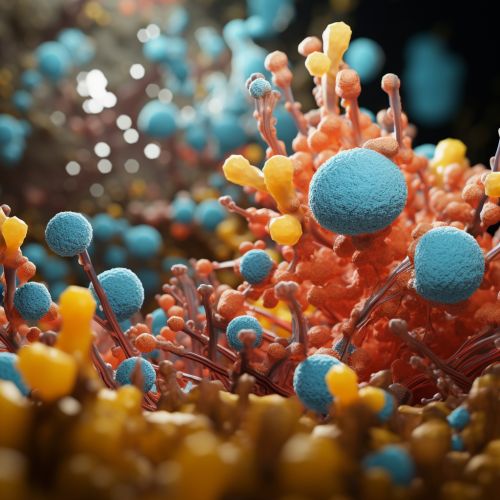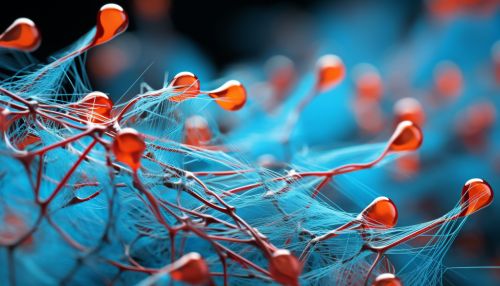Prions
Introduction
Prions are a type of protein that can trigger normal proteins in the brain to fold abnormally. Prion diseases can affect both humans and animals and are sometimes spread to humans by infected meat products. The most common form of prion disease that affects humans is Creutzfeldt-Jakob disease (CJD).
Structure and Function
Prions are composed of protein material and are devoid of any nucleic acid genome. Unlike viruses, bacteria, and fungi, prions do not contain DNA or RNA. Yet, they are capable of replicating and causing diseases. Prions are abnormal isoforms of a normal protein found predominantly in the brain. The normal form of the protein is denoted as PrP^C (C for cellular), while the abnormal form is denoted as PrP^Sc (Sc for scrapie, a prion disease in sheep).


Transmission
Prion diseases, also known as transmissible spongiform encephalopathies (TSEs), are infectious and can be spread through contact with infected tissue, particularly nervous tissue. The most well-known prion disease, bovine spongiform encephalopathy (BSE), is spread by consuming infected beef. Other prion diseases, such as variant Creutzfeldt-Jakob disease (vCJD), can also be spread through contaminated surgical instruments.
Prion Diseases
Prion diseases comprise several conditions. A prion disease can be sporadic, hereditary, or acquired. Sporadic prion diseases are the most common type, while hereditary prion diseases are caused by mutations in the PRNP gene. Acquired prion diseases are caused by exposure to prion-contaminated tissues or materials.
Creutzfeldt-Jakob Disease (CJD)
Creutzfeldt-Jakob disease (CJD) is a rapidly progressive, invariably fatal neurodegenerative disorder believed to be caused by an abnormal isoform of a cellular glycoprotein known as the prion protein. CJD occurs worldwide and has an annual incidence of about one case per million people.
Variant Creutzfeldt-Jakob Disease (vCJD)
Variant Creutzfeldt-Jakob disease (vCJD) is a type of prion disease that was first described in 1996 in the United Kingdom. There is strong evidence that the agent responsible for the outbreak of prion disease in cows, bovine spongiform encephalopathy (BSE or 'mad cow' disease), is the same agent responsible for vCJD in humans.
Kuru
Kuru is a prion disease that was once prevalent among the Fore people of Papua New Guinea. Kuru is now almost extinct due to the cessation of the cannibalistic practices that were responsible for its transmission.
Fatal Familial Insomnia (FFI)
Fatal familial insomnia (FFI) is a prion disease that is inherited and caused by a mutation of the PRNP gene. FFI is characterized by an inability to sleep that may be accompanied by dysautonomia, and motor and cognitive disturbances.
Diagnosis and Treatment
Prion diseases can only be confirmed by taking a sample of brain tissue during a biopsy or after death. Healthcare providers, however, can do tests to rule out other diseases with similar signs and symptoms. There are no treatments that can cure or control prion diseases. Current treatment approaches focus on relieving symptoms and making the person as comfortable as possible.
Research
Research on prions and prion diseases is ongoing. Scientists are focusing on understanding the precise mechanism of prion replication and spread, the cellular processes leading to neuronal death, and the nature of the prion agent. This research is expected to lead to the development of effective treatment strategies.
